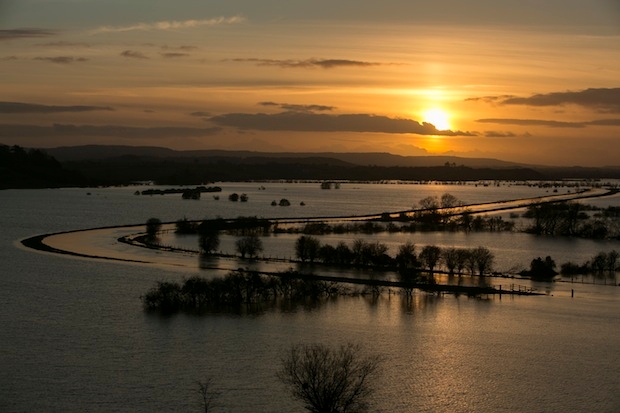It is not surprising that the Environment Agency (EA) have come under attack for the flooding in South West England. What is surprising is how long it took people to catch on to the fact that if anyone was to blame, it was the EA, not Owen Paterson. As this week’s leading article in The Spectator says, ‘the unprecedented scale of this mess is not just due to nature. It is a disaster that has resulted from a deliberate policy followed by the Environment Agency since, 18 years ago, it was given overall responsibility for river management and flood defences throughout England.’
The agency decided – perhaps mistakenly – that wildlife is more important than humans, and their livelihoods. The irony is that unfortunately for the wildlife of South West England, the urban bureaucrats have even managed to destroy much of the ‘natural habitats’ which they had hoped to nurture through not dredging the rivers. Funnily enough, few ground-dwelling animals or non-aquatic plants will survive underwater for a month.
With responsibility for dredging lying with a quango led by a Labour peer, and with a Conservative in charge of Defra, it was inevitable that this fiasco was going to turn into a political issue. So all credit goes to Eric Pickles, who seems to want to get on with the job of tackling the floods as well as can be done:
‘We made a mistake, there’s no doubt about that and we perhaps relied too much on the Environment Agency’s advice… I think it is important now that we get on the process of getting those people back into their houses once we are able to really do some serious pumping.’
A petition for the EA’s Chairman Chris Smith to be sacked has already been launched, but there seems little point when he’s due to step down in July anyway. Let’s just hope that their next appointment has a better understanding of the need to balance the needs of humans and wildlife. Listening to Tessa Munt’s campaign for the EA to include among their aims ‘the protection of productive land’ might be a good start.







Comments